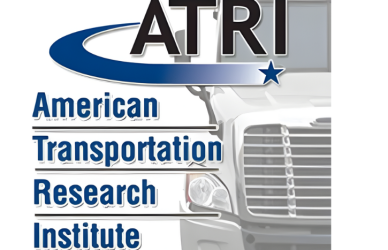During a recent driver compensation committee meeting, OOIDA Board Members Doug Smith and Bryan Spoon, along with life member Stu Hochfelder, raised concerns about the current pay structure and lack of overtime for truck drivers. Many are struggling to make a living wage, forcing many to work long hours to make ends meet.
“When you’re loaded, you want to get empty,” Smith said. “When you’re empty, you want to get loaded. There’s constant anxiety. This has developed into a 70-hour work week. You’re either driving or sleeping. If you’re not working, you should be sleeping.”
The National Academies of Sciences’ Transportation Research Board driver compensation committee was established in January to investigate how different compensation methods for drivers impact safety and retention. This includes hourly pay, compensation for detention time, and other industry-standard methods.
As per the U.S. Bureau of Labor Statistics, heavy-haul truck drivers earned a median salary of $48,310 in 2021. However, members of OOIDA have informed the committee that this figure does not tell the whole story. Many truck drivers have to work 60-70 hours per week to earn this amount, which paints a different picture of the average wage.
“We should all be paid for our time,” Hochfelder said.
Truck drivers are often not paid for essential tasks such as loading and unloading, equipment checks, and refueling due to the current pay-by-the-mile system. Furthermore, the Fair Labor Standards Act of 1938 exempts employers from paying truck drivers overtime. Stay informed of the ongoing challenges faced by truck drivers in the modern workforce.
“You need to require overtime,” Smith said. “It’s just unconscionable in this day and age that we don’t have overtime for truck drivers.”
According to Smith, if company drivers earn overtime, this can benefit owner-operators by providing them with higher wages. Additionally, Spoon informed the committee that the weight of responsibility placed on truck drivers should be shared amongst all parties involved in the supply chain.
“My paycheck goes up and down, up and down,” Spoon said. “The trucker can’t be the one that carries all of the burden of that up and down. It’s a burden that needs to be shared.”
According to the OOIDA members, if the overtime exemption is removed, it would transfer the responsibility of estimating the value of a truck driver’s time onto shippers and receivers. This shift in burden could have significant impacts on the industry.
Last week, Representative Jefferson Van Drew of New Jersey voiced his opposition to the overtime exemption at a hearing of the House Highways and Transit Subcommittee.
“Truckers are an essential component of our nation’s supply chain and compensating them appropriately is the least we can do to support them,” Van Drew said. “Let’s be fair. Let’s be decent to the hard-working men and women who do this job.”
The Guaranteeing Overtime for Truckers Act, which was aided in its creation by the Owner-Operator Independent Drivers Association, is anticipated to be re-presented to Congress in the near future.
Source: Land Line











